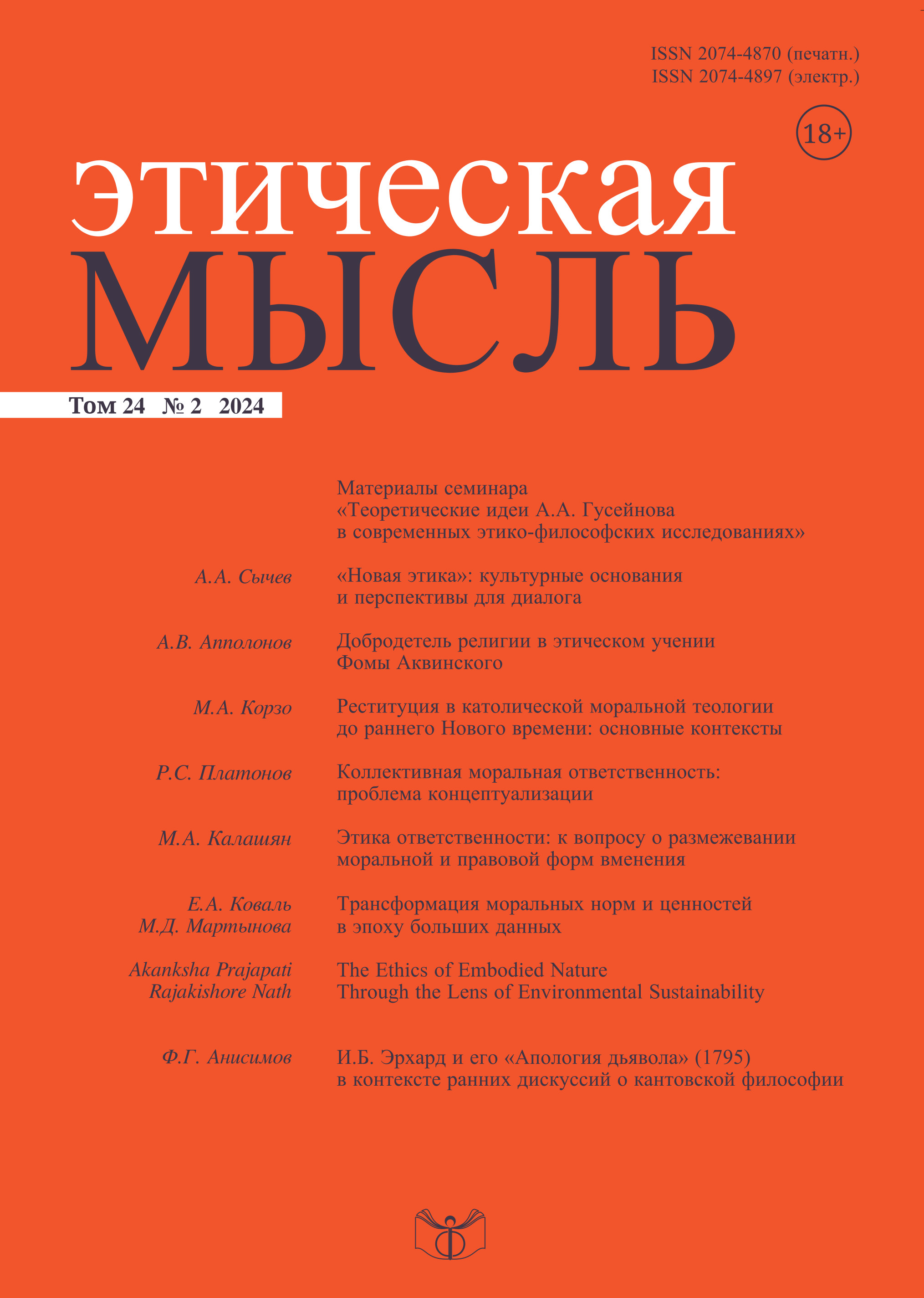The Virtue of Religion in the Ethics of Thomas Aquinas
DOI:
https://doi.org/10.21146/2074-4870-2024-24-2-34-46Keywords:
philosophical ethics, Christian ethics, virtue of religion, natural religion, medieval scholasticism, Aristotle, Cicero, Thomas AquinasAbstract
The article discusses the problems related to Thomas Aquinas’ adaptation of the Ciceronian doctrine of the virtue of religion as a “potential part” of the virtue of justice. Thomas was developing his ethical system on the basis of the fundamental principles and concepts of the moral philosophy of Aristotle and other classical thinkers, but this work was carried out primarily for the benefit of Christian theology. Accordingly, his most important task was to harmonize such principles and concepts with the requirements of the biblical monotheistic worldview. Formulating his doctrine of the virtues of religion, Aquinas intensively consulted Cicero’s writings, from which he borrowed, among other things, the very definition of religion. However, it was impossible to integrate some aspects of Cicero’s teaching into the Thomas’ ethics. Cicero believed that the virtue of religion, like other virtues associated with justice, was natural and acquired in the Aristotelian sense of habituation. For his part, Thomas, following his basic theological principles, strongly connected the virtue of religion with theological virtues, as a result of which it had to be considered as a supernatural infused virtue. Not recognizing the naturalness of the virtue of religion, Thomas, nevertheless, was ready to admit the naturalness of religious behavior, which finds expression in certain actions (prayer, sacrifice, etc.). This (partially paradoxical) approach appears to be an attempt to reconcile the theory with the empirically observed universality of particular religious practices, as well as a kind of homage to the classical philosophical tradition.









